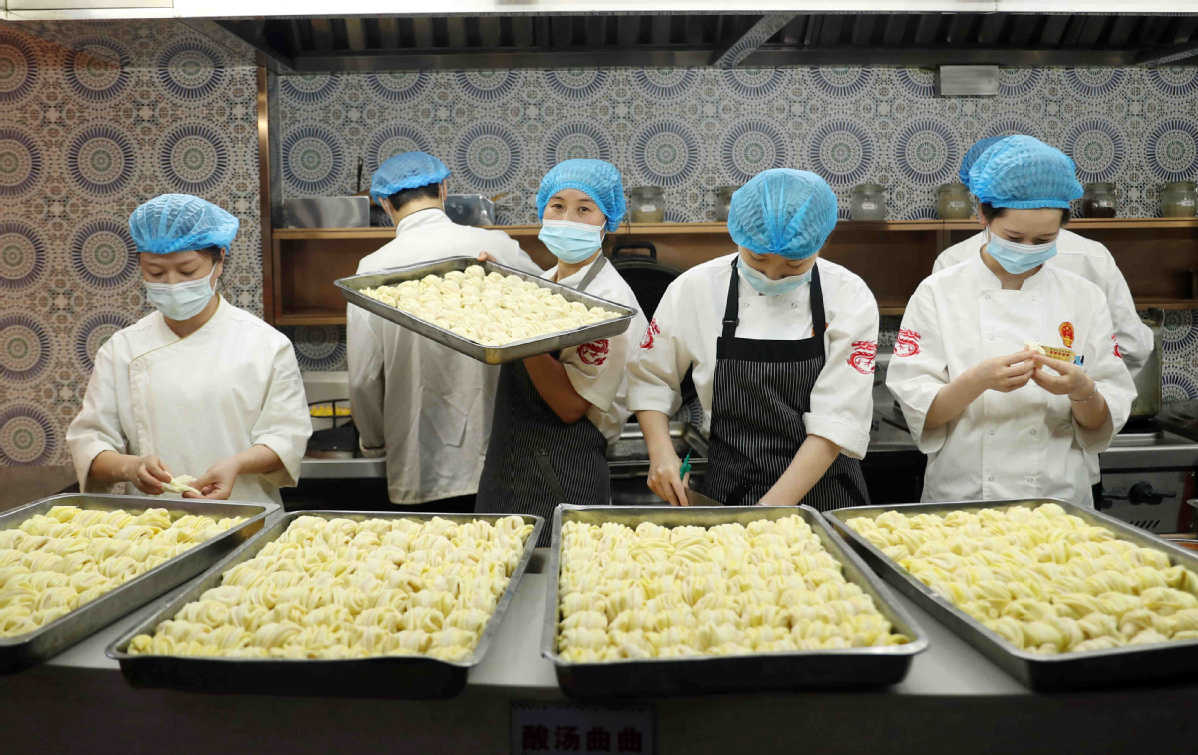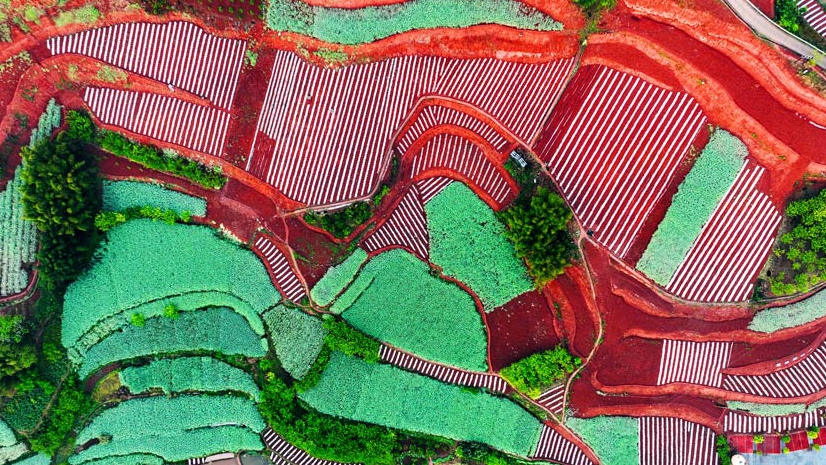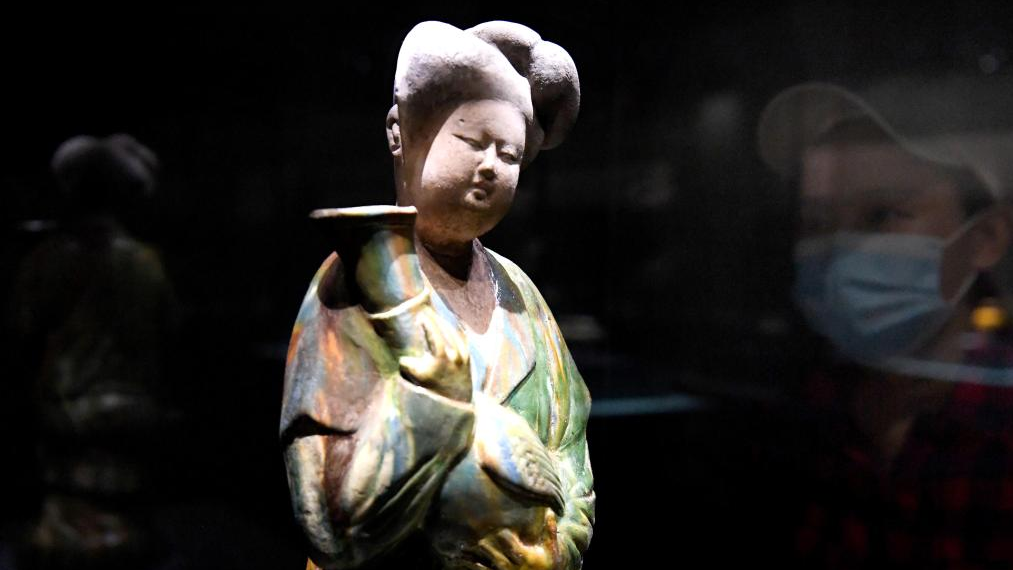Swift steps taken to contain COVID

Hotel employees make steamed buns for customers in Urumqi, Xinjiang Uygur autonomous region, on Sunday. Hotels, shopping malls, restaurants and supermarkets are gradually reopening as the COVID-19 situation improves and the city eases its restrictions. CHINA DAILY
People told to celebrate Mid-Autumn Festival locally to avoid spreading virus
The Chinese mainland on Sunday reported 303 locally transmitted confirmed COVID-19 cases and 1,249 asymptomatic carriers, the National Health Commission reported on Monday, as regions around the country took swift and decisive steps to contain COVID-19 cases in their areas.
Thirty-four regions, including seven cities, have been put under static management or partial static management. Some places have urged people to celebrate the upcoming Mid-Autumn Festival locally to reduce the risk of the virus spreading.
Under static management, all social gatherings are canceled except those to ensure the livelihood of people and the basic operations of the city.
Chengdu, Sichuan province, reported 90 local COVID-19 cases and 50 asymptomatic carriers on Sunday, bringing the current respective tally to 940 and 395, the Sichuan Health Commission said on Monday.
Chengdu started citywide static management at 6 pm on Thursday in the aftermath of the recent COVID-19 outbreak, which began on Aug 25.
From Thursday to Sunday, residents were required to stay home, and unnecessary business activity was suspended. Households under lockdown were permitted to send one member with a negative nucleic acid test result obtained within 24 hours to go out for two hours a day to buy daily supplies.
Chengdu has completed three rounds of nucleic acid testing of local residents, collecting around 20 million samples each time.
In the past three days, the number of positive cases detected by the testing had gone down, Yang Xiaoguang, director of the Chengdu municipal health commission, said on Sunday.
Chengdu's pandemic prevention and control is in a critical period. Zero COVID-19 status at the community level has yet to be achieved, so the city's prevention and control measures cannot be relaxed, Yang said.
In another area, some hungry macaques from Qianlingshan Park in Guiyang, Guizhou province, were seen climbing up and down residential buildings in search of food, after the park was closed in response to an outbreak of COVID-19. The macaques were well-fed by park visitors.
A notice from the Yunyan district government asked residents to keep their doors and windows closed at all times, as the park works on luring the monkeys back.
Macaques are a national protected animal in China. Residents who see macaques at their homes were asked to stay calm and not play with, threaten or feed the monkeys. They should report the animals to their property management companies to expel them, the notice said.
After five days of fighting the latest outbreak, the epidemic situation in Guiyang remains severe and complex, officials said on Monday.
As of 10 am on Monday, tests found 132 positive cases, including 67 awaiting further confirmation, Liu Lan, the vice-mayor of Guiyang, said at news conference on Monday. "Starting Monday, some urban areas in the city will put under four-day static management," she said.
The city of Shenzhen, Guangdong province, has adopted COVID-19 control measures as the number of new cases detected in its communities surged.
The temporary prevention and control measures will be lifted if no new cases are found in communities and subdistricts for three consecutive days.
All bus and subway service will be suspended in the subdistricts where temporary control measures are in force, according to the local health authority.
The city reported 50 new locally transmitted confirmed cases and 21 asymptomatic carriers on Sunday, the authorities said.
According to a report in Health Times, the mainland has reported 6,696 local infections in 26 provinces and regions since Thursday.
The report said the epidemic situation in Liaoning, Heilongjiang, Guangdong, Sichuan and Qinghai provinces and the Tibet autonomous region remains serious.
Chen Meiling, Ye Zizhenand Zhou Huiyingcontributed to this story.
Photos
Related Stories
- "Lying flat" in COVID fight is bane for world
- Chinese researchers develop anti-SARS-CoV-2 nanomaterial
- New study suggests SARS-CoV-2 antigen levels linked to patient outcomes
- Chinese mainland reports 553 new local confirmed COVID-19 cases
- Daily COVID-19 cases across 17 provincial-level regions surpass 2,000
Copyright © 2022 People's Daily Online. All Rights Reserved.









